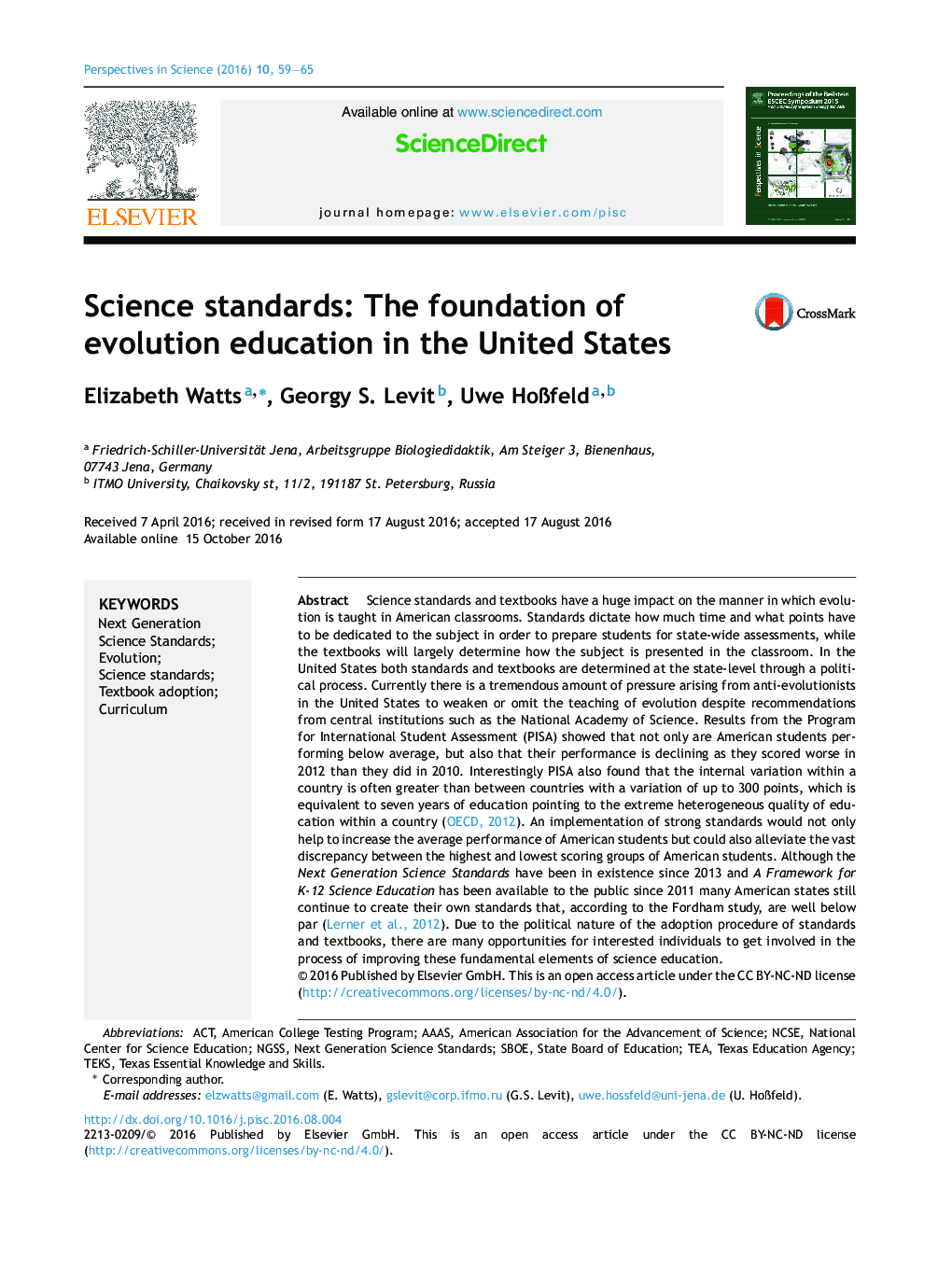| Article ID | Journal | Published Year | Pages | File Type |
|---|---|---|---|---|
| 5518788 | Perspectives in Science | 2016 | 7 Pages |
Science standards and textbooks have a huge impact on the manner in which evolution is taught in American classrooms. Standards dictate how much time and what points have to be dedicated to the subject in order to prepare students for state-wide assessments, while the textbooks will largely determine how the subject is presented in the classroom. In the United States both standards and textbooks are determined at the state-level through a political process. Currently there is a tremendous amount of pressure arising from anti-evolutionists in the United States to weaken or omit the teaching of evolution despite recommendations from central institutions such as the National Academy of Science. Results from the Program for International Student Assessment (PISA) showed that not only are American students performing below average, but also that their performance is declining as they scored worse in 2012 than they did in 2010. Interestingly PISA also found that the internal variation within a country is often greater than between countries with a variation of up to 300 points, which is equivalent to seven years of education pointing to the extreme heterogeneous quality of education within a country (OECD, 2012). An implementation of strong standards would not only help to increase the average performance of American students but could also alleviate the vast discrepancy between the highest and lowest scoring groups of American students. Although the Next Generation Science Standards have been in existence since 2013 and A Framework for K-12 Science Education has been available to the public since 2011 many American states still continue to create their own standards that, according to the Fordham study, are well below par (Lerner et al., 2012). Due to the political nature of the adoption procedure of standards and textbooks, there are many opportunities for interested individuals to get involved in the process of improving these fundamental elements of science education.
